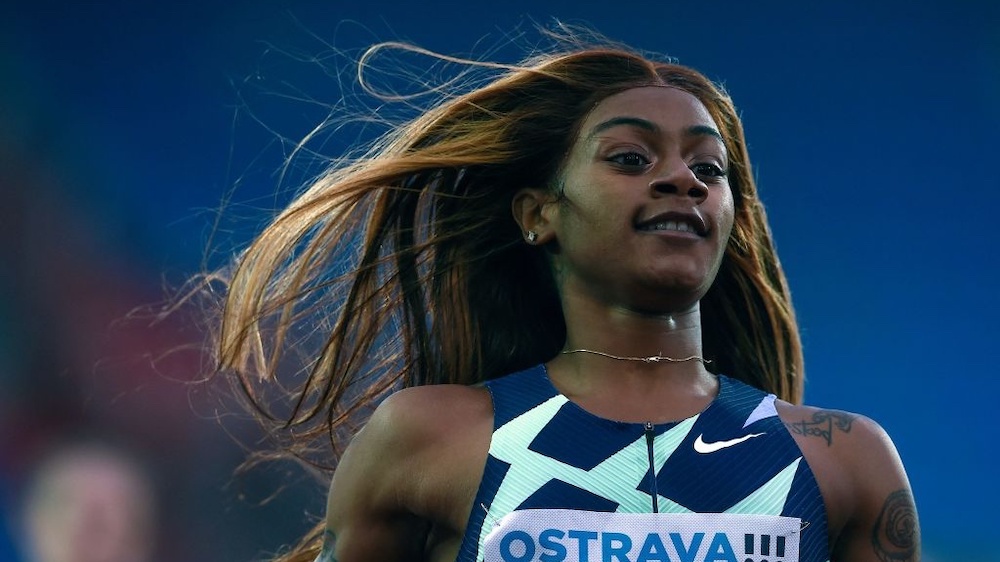If you’re interested in sharing your opinion on any cultural, political or personal topic, create an account here and check out our how-to post to learn more.
Opinions are the writer’s own and not those of Blavity's.
____
In the past several weeks, the Olympic Committee expelled sprinter Sha’Carri Richardson from the Olympics after testing positive for cannabis, Naomi Osaka faced backlash for withdrawing from the French Open for refusal to engage with the press and five Black women, including Caster Semenya, were suspended from competition due to their own natural testosterone levels.
Black women have always had to be strong, deliberate and self-sacrificing — putting our needs behind notions of country, family, faith and industry. Black women have always fought for the rights of everyone else in hopes of getting leftovers from those with closer proximity to the privilege. As athletes prepare for the summer Olympics, these contradictions are only amplified in the world of competitive sports.
For women of color in sports, playing too assertively or passionately can lead to game-losing penalties. (Think Serena Williams at the U.S. Open in 2018.) Further, saying the wrong thing in a single interview can end a sponsorship. This is a primary example of how women of color in sports, especially Black women, must play two games by competing athletically and vying for public acceptance. Meanwhile, white women athletes focus solely on their sport.
Let’s start with Sha’Carri Richardson, a fierce and incredibly talented athlete. Richardson was an early gold medal favorite for this year’s Olympics. In grief, she consumed cannabis to help cope with the loss of her biological mother. Sha’carri is a Black, openly bisexual woman, in her early 20s. At the time, Richardson was in Oregon — a state where consuming cannabis is legal. She did not consume the drug during or for a competition. Cannabis has long been said to be a medical aid for anxiety and trauma.
Although many health organizations dispute this, the public statement regarding Richardson’s expulsion states that cannabis is a performance-enhancing drug because it helps alleviate anxiety. Despite cannabis’ increased acceptance and legalization, organizations, from the International Olympic Committee to the federal government of the United States, are running out of explanations as to why cannabis remains on the list of dangerous and prohibited drugs.
After Naomi Osaka confessed that ridicule from the media had a severely negative impact on her mental health, she swiftly withdrew from the French Open, despite being favored to win. Osaka articulated the possibility of a unilateral change to benefit all athletes — that participation in media interviews should be optional based on an athlete’s mental state. While Osaka acted in the best interest of her own psychological well-being, public backlash ensued almost immediately. Being a Black and Asian woman presents its own set of challenges.
In addition to mental health stigma, issues like high testosterone levels are now under fire as an “unfair advantage” for women athletes. At present, the Olympics are struggling with the same basic concepts between trans-exclusive feminists and right-wing conservatives: sex and gender are not binary.
People have been born with intersex and related hormonal conditions, like Polycycist Ovarian Syndrome (PCOS), for generations. Despite ample scientific data, the Olympic Committee is punishing athletes for being born with genetic or biological conditions by removing talented women from competition completely — all based on arbitrary notions of what is “fair.” This reality is pervasive and illustrates a deeply rooted prejudice that favors particular body types for women and contradicts the essence of competition in all sports.
As a woman with PCOS, I have more male hormones, or androgens, than other women. Depending on the time I am tested, I could naturally have more testosterone than the average woman, or higher levels of estrogen. One's gender identity — a concept that is not defined by science but social constructs — should not be defined by our hormone levels. The Olympic committee has yet to truly acknowledge or account for the impacts of conditions like PCOS on athletes.
Blaming an athlete’s victory on their hormone count does an incredible disservice to those who take training and preparing for events seriously. These notions are rooted in a dichotomous gender spectrum that allows for a single idea of what men and women are and should be.
Whether it’s physical or mental health, Black women deserve autonomy over our bodies and our careers. Any institution or organization that denies this basic guarantee does not deserve to profit off of our talents.
